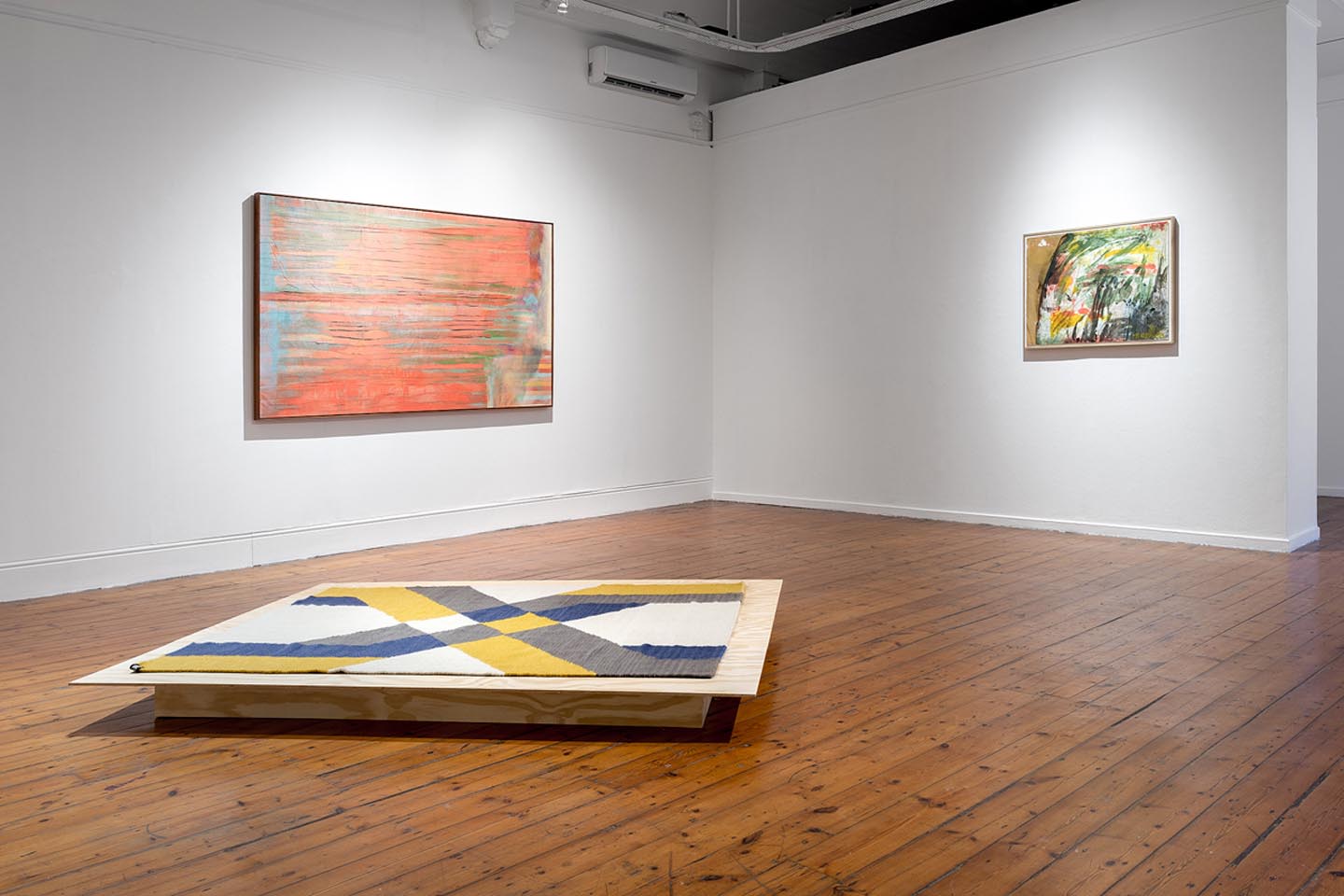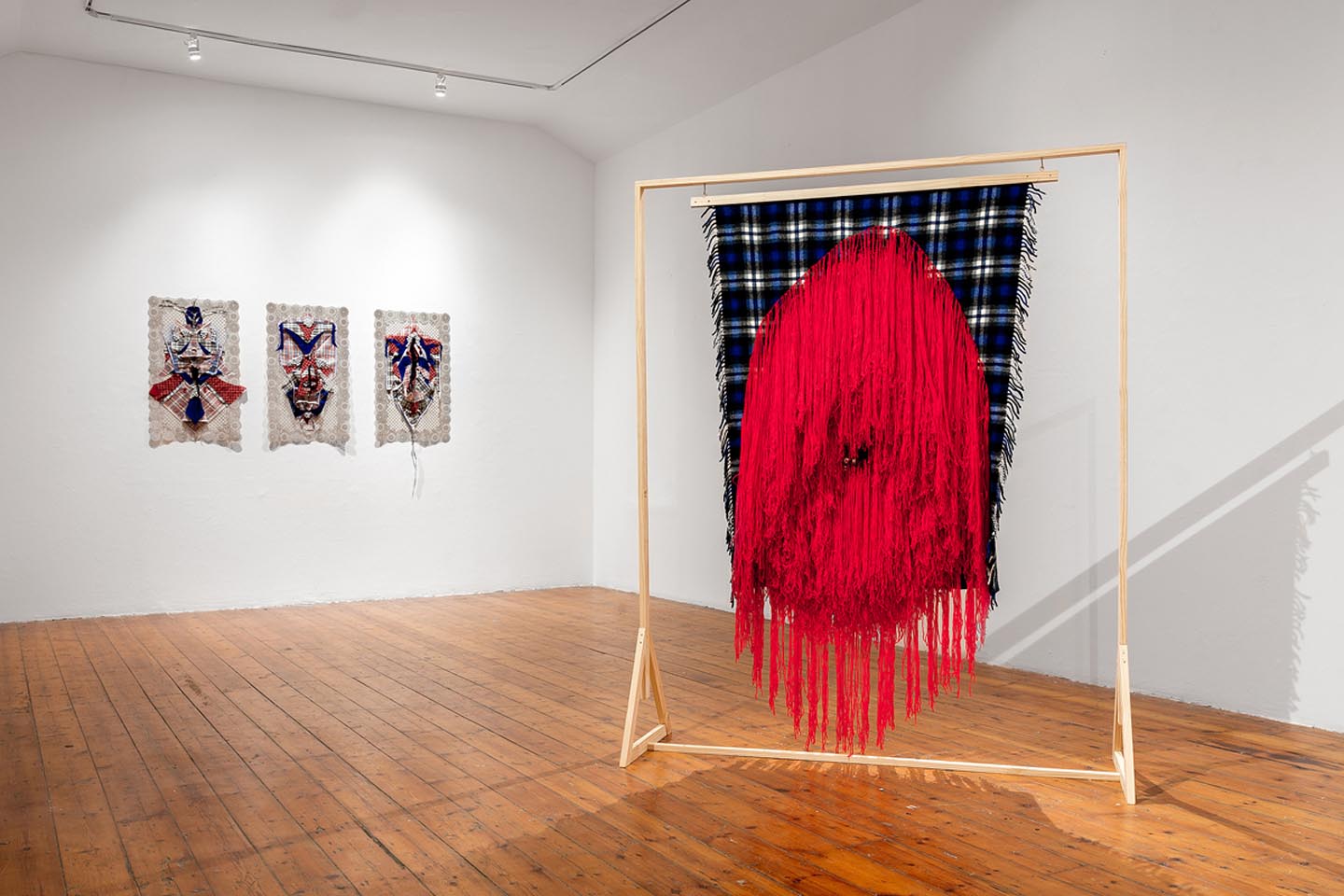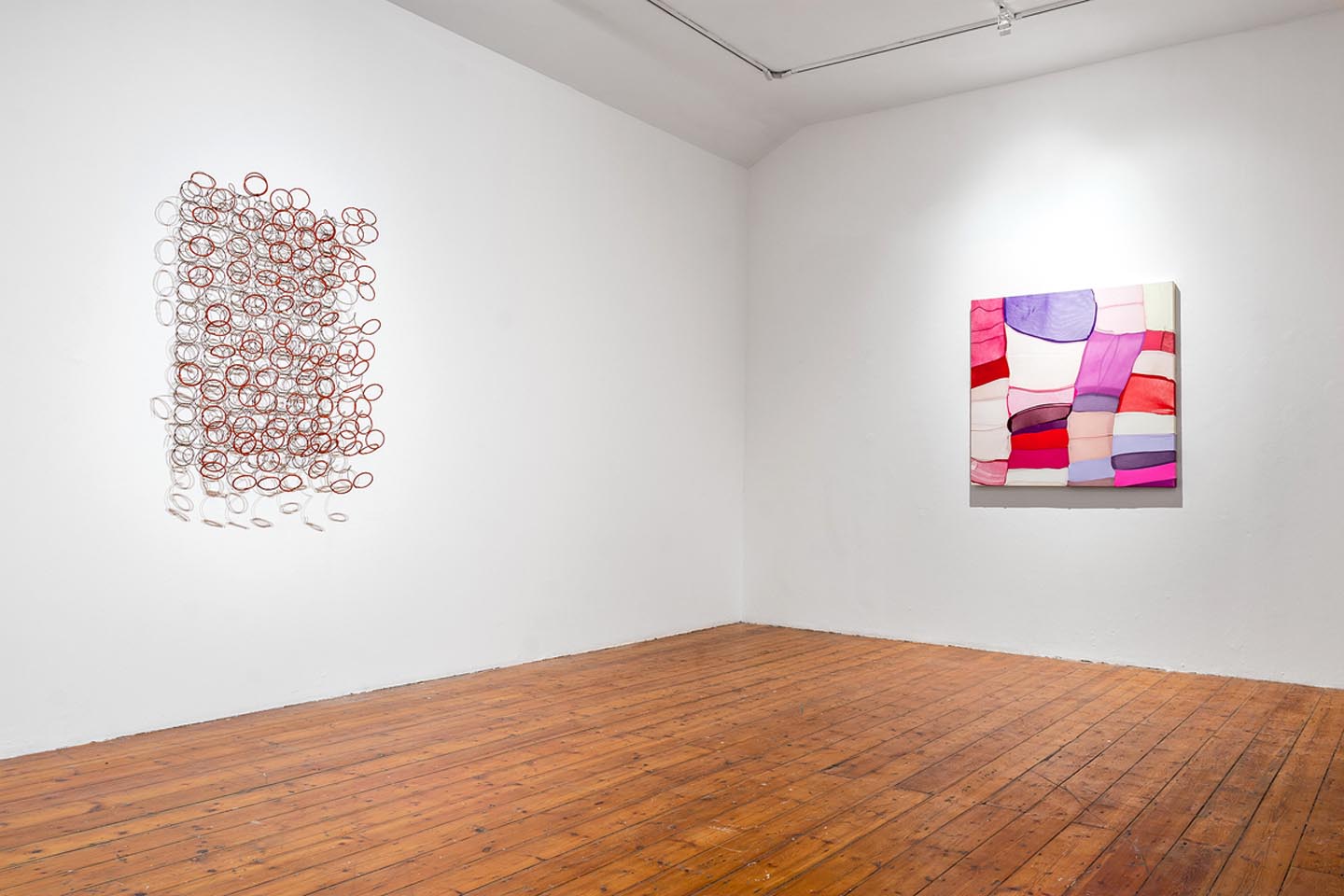The research by Kisito Assangni on “curating as a phenomenological history of everyday life”, continues today in dialogue with Nkule Mabaso on Curatorial research & Sharing authority.
Kisito Assangni: Does curating generate knowledge?
Nkule Mabaso: By recognising artistic practice as a self-contained area of knowledge production, curatorial impulse and its layered interactions with artistic practice and other areas of knowledge production and dissemination has the potential to create new knowledges; and it does this by being engaged in discussive frameworks that play an important role in the production of meaning through exhibition-making that communicate the particularities of artworks and their contexts. So it’s about the design and orientation of the curatorial enquiry, clearly not all exhibitions may be intended towards meaning making.
Is there universal truth in curating or is it a particular opinion?
The curator is the writer/ author, and the exhibition presents curator’s point of, novel / original or otherwise. Each iteration of a curatorial enquiry presents sections of an opinion on a topic and cannot claim to be universal or total in anyway. It is a position, made from and through very specific references and citations. The boundaries of the exhibition and its objects are drawn and made fluid by the context on the given exhibition, and within these interactions it matters what positions are made prominent and which elements become footnotes.

How do you confront global and transcendent issues related to art production?
I am the least confrontational person ever, and this also a very recent self-realisation; so a productive approach issues around art production for me has been to partner up and amply solidarities for each project and each artists that is involved. By engaging people and bringing them to where one is in order to engender them with the nuances of my concerns has created nourishing and lasting pathways of international exchange.
What do you think are the hierarchies inherent in the work of curating collections, archives, and contemporary artworks? Is there something right or wrong with the idea of curating from an absolutely pluralistic perspective?
Not anything wrong or right as much as pluralistic positions are interesting and necessary as a direction away from singular/ heroising thinking. My own practice is collaborative and in pluralistic. This kind of positionality is productive for an African feminist orientation that leans towards an ethic of epistemic justice. Curating and organising pluralistically means critically expanding the pedagogic bases and network of voices that the artistic and curatorial research can speak to by sharing authority and distributing agency latterly and broadly.

Do you consider your own bias and cultural limitations, you are aware off, and how do you deal with them in your curatorial practice?
My curatorial work and intellectual work both to concerns that are then navigated through embodied methodologies so this means I am remain always very aware of my biases and I do not see them as negative but rather as certain stakes that I make my position clear and apparent across my writing and projects; of course my subjective position is not the total position and but it is mine so working collaboratively yet subjectively encourages an ebb and flow to the growth and connection my work makes with the work of other practitioners.
Define a tension in curatorial practice, describe its attributes and context, define its relation to archives and evidence, what is there to display?
Nontobeko Ntombela in her intellectual and curatorial practice has done a lot of work to draw-out the tensions between the regimes of hypervisibility and invisibility attendant to the ‘efforts’ of ‘creating visibility’ for black women artist, and African women in particular. This bears itself out in the ways that there is massive consumption of contemporary practises by black women but an absence of histography on modernist and other historical figures; so, the practice and careers have a tendency to ‘disappear’ overtime short amounts of time. So, I suppose this question is answered by the lacuna in the archive which reinforces a the ‘lack of appearance’ which somehow becomes evidence of non-activity from both the artistic and curatorial engagement position. Ntombela’s 2012 treatise “A fragile archive” while based on Gladys Mgudlandlu, is still very relevant and insightful read on this subject and its manifold manifestations.

Any book or exhibition recommendations?
Currently reading through “Sovereign Words. Indigenous Art, Curation and Criticism” Published by OCA / Valiz 2018, about artists and cultural practitioners from Indigenous communities around the world and the challenges they face while navigating meaningfully and ethically with institutions as the institutions attempt to engage the histories, presents and futures of Indigenous cultural practices and world-views. This is an interesting read right now because some of the concerns touch on the Dr. Esther Mahlangu retrospective exhibition Nontobeko Ntombela are currently work on.
Nkule Mabaso (South Africa) is the director of Natal Collective an independent production company active internationally in the research and presentation of creative and cultural Africana contemporary art and politics. Recent projects include the curation, together with Nomusa Makhubu, of the South Africa Pavilion at the Venice Biennale Arte 2019 under the title The stronger we become. Nkule is an artist and curator who graduated with a Fine Arts degree from the University of Cape Town (UCT) in 2011 and received a Masters in Curating from the Zurich University of the Arts (ZHdK) in 2014. She was the former curator of the Michaelis Galleries at University of Cape Town. She has curated and organised exhibitions and public talks in Switzerland, Malawi, Tanzania, the Netherlands and South Africa. Nkule voluntarily serves on the advisory boards of VANSA, the Standard Bank Art Gallery in Johannesburg, The University of Cape Town Works of Art Committee, the Museum Services Board of the Western Cape Department of Cultural Affairs and Sport and is contributing editor to the Oncurating Journal at the ZHdK. She is also one of three founding directors of the cultural platform artistslibrary.org together with Nadja Daehnke, Robyn-Leigh Cedras. The artistslibrary.org is an online database of publicly submitted digital catalogues that aim to be a repository, making artists research and related publications available and searchable internationally. Nkule’s practice is collaborative with her research interests centering around theorizing and articulating nuanced aesthetic questions from the black female vantage point and she has made significant strides in national and international curatorial projects and has contributed to a number of prominent research publications on the subject.
The interview to Nkule Mabaso is part of Kisito Assangni’s research on “curating as a phenomenological history of everyday life”:
Transitory conversations with reputable curators who engage positively with artistic practices driven by non-oppressive facilitation, alternative pedagogies, chronopolitics, and contemporary urgencies within the context of larger political, cultural, and economic processes. At this very moment in history, as well as raising some epistemological questions about redefining what is essential, this revelatory interview series attempts to bring together different critical approaches regarding international knowledge transfer, transcultural and transdisciplinary curatorial discourse. (Kisito Assangni)
Past interviews:
Kisito Assangni, Interview to Lorella Scacco (Arshake, 20.07.2021)
Kisito Assangni, Interview to Kantuta Quirós & Aliocha Imhoff (Arshake, 11.05.2021)
Kisito Assangni, Interview to Adonay Bermúdez. Universal Truths Have no Place in Curating (Arshake, 08.06.2021)
Kisito Assangni, Kantuta Quirós & Aliocha Imhoff. Curatorial Methology as inter-epistemic dialogue (Arshake, 11.05.2021)
Kisito Assangni, Interview to Adonay Bermúdez. Universal Truths Have no Place in Curating (Arshake, 08.06.2021)
images: (cover 1) Bonolo Kavula, Esther Mahlangu. Installation view, Speculative Inquiry #1 (on Abstraction). Curator Nkule Mabaso, photos Andrew Juries. Images courtesy of Michaelis Galleries, University of Cape Town (2) Nkuli Mlangeni & the Ninevites, Nomthunzi Mashalaba, Nandipha Mnthambo. Installation view, Speculative Inquiry #1 (on Abstraction). Curator Nkule Mabaso, photos Andrew Juries. Images courtesy of Michaelis Galleries, University of Cape Town (3) Senzeni Marasela, Thembeka Heidi Sincuba. Installation view, Speculative Inquiry #1 (on Abstraction). Curator Nkule Mabaso, photos Andrew Juries. Images courtesy of Michaelis Galleries, University of Cape Town (4) Bronwyn Katz, Turiya Magadlela. Installation view, Speculative Inquiry #1 (on Abstraction). Curator Nkule Mabaso, photos Andrew Juries. Images courtesy of Michaelis Galleries, University of Cape Town









































